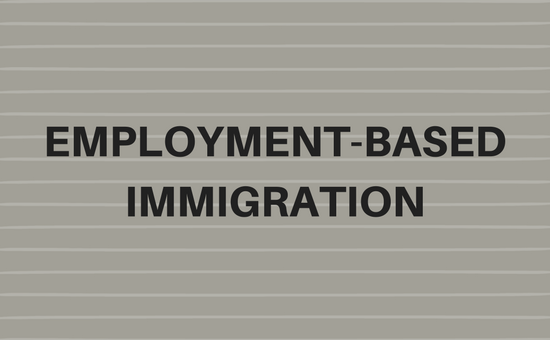In PART ONE, we noted that four different waivers for the foreign residence requirement are available to a foreign-medical-graduate exchange visitor who acquired exchange visitor status to receive graduate medical training. In the first part, we took a closer look at two of these waivers: waivers based on hardship and those based on persecution. In this part, we will take a closer look at the other two waivers: waivers based on a state health department’s desire for the foreign medical graduate to remain in the US and waivers based on a federal agency’s desire for foreign medical graduate to remain in the US.
Conrad Waivers – Recommendations for Waivers from States
Under certain circumstances, a foreign medical graduate who entered the US or changed status to receive a graduate medical education may receive a waiver if a US state or the District of Columbia recommends, to the Department of State, that the foreign medical graduate receive one. In addition to this recommendation, many other requirements are sometimes applicable: the government of the foreign medical graduate’s home country must supply the Department of State with a statement expressing that the if the foreign medical graduate’s home country does not object to such waiver, if the foreign medical graduate received funding from the his or her home country’s government for his or her graduate medical education; and the state must not have already been allotted 30 waivers for the fiscal year; the foreign medical graduate must show a bona fide offer of full-time employment at a qualifying medical facility; and the foreign medical graduate must agree to practice primary care or specialty medicine for at least three years in only a geographic area (or areas) designated as having a shortage of health care professionals; and foreign medical graduate must actually work for at least 3 years for the qualifying medical facility; and the foreign medical graduate must agree to start working for the qualifying medical facility within 90 days of the waiver grant.
An Interested US Government Agency
Under certain circumstances, a foreign medical graduate who entered the US or changed status to receive graduate medical education may receive a waiver of the foreign residence requirement if a US government agency sponsors the foreign medical graduate.
Many requirements sometimes must be satisfied. The foreign medical graduate must show a bona fide offer of full-time employment at a qualifying medical facility. The foreign medical graduate must agree to work for at least 3 years for the relevant facility. The foreign medical graduate must agree to start working for the qualifying medical facility within 90 days of the waiver grant. The foreign medical graduate must agree to practice primary care or specialty medicine for at least three years in only a geographic area (or areas) designated as having a shortage of health care professionals, unless the Department of Veterans Affairs (VA) makes the waiver request (in which case, the foreign medical graduate is not required to practice medicine in a such geographic area). Further, if the waiver request by an interested Federal agency is for an alien who agrees to practice specialty medicine in a facility located in a qualifying geographic area, the request must establish there is a shortage of health care professionals able to provide services in the appropriate medical specialty to the patients who will be served by the foreign medical graduate.
